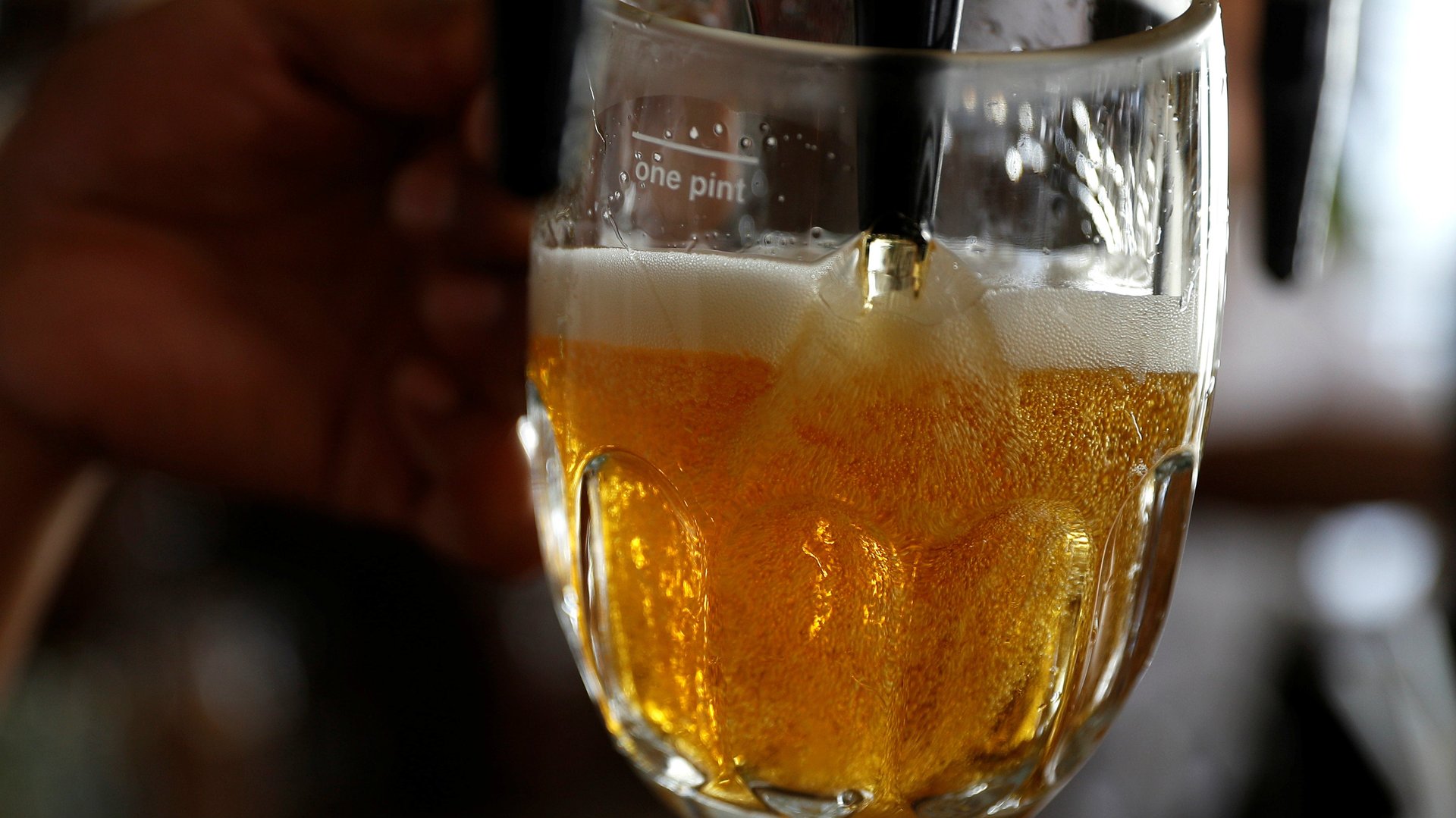Wine before beer, or beer before wine? Science says the hangover will be equally punishing
There’s an old wives’ tale about the best order to drink your tipple of choice: “Beer before wine and you’ll feel fine; wine before beer, have fear.”


There’s an old wives’ tale about the best order to drink your tipple of choice: “Beer before wine and you’ll feel fine; wine before beer, have fear.”
Researchers from Cambridge and Witten/Herdecke University in Germany have finally gotten to the bottom of just which order of play is ideal. The answer, perhaps unsurprisingly, is either choice will leave you feeling like garbage.
The study, published today (Feb. 8) in the American Journal of Clinical Nutrition, sounds like it was devised in a frat house. After serving 90 participants what was hopefully a carbohydrate-laden meal, researchers made them drink until their breath alcohol concentration (BrAC) reached 0.11%, which for some people could translate to as much as two pints of lager and four glasses of wine. (The drinks in question were a “premium Pilsner lager recipe from 1847 by Carlsberg…served cold” and a”quality” bio-certified white wine, also served cold.) A second group was given the reverse order, while a control group was given just beer or wine. Perhaps unlike a frat, participants could bow out early if they chose or, if safety concerns were raised. Once they were sufficiently hammered, they were sent to bed with a glass of water.
To ensure the groups were equal in terms of their likelihood to get, well, drunk, the researchers put individuals with similar “age, gender, weight, height, BMI, reported alcohol consumption rate, and hangover frequency,” into groups of three and assigned each trio to one of the three study groups. Participants from each group were then asked to rate the severity of their hangover the next day based on the presence of symptoms like thirst, fatigue, nausea, stomach and aches, and a loss of appetite. The Acute Hangover Scale (AHS) ranged from zero hangover symptoms to the “worst imaginable hangover.”
The scientists then repeated the diabolical experiment on a second day, giving the participants the opposite order they’d had on the first, and switching the control group’s beverage. Participants were again asked to record how they felt the following day.
The study has limitations, the researchers acknowledged, including that it only studied the effects of beer and wine, that people’s alcohol tolerance levels vary, and that it was impossible to conceal from participants which group they were allocated to. The researchers also said they struggled to create a control group that drank non-alcoholic beer or wine. When they tried to, participants expressed “real dissatisfaction and envy” about not being in the “ever-so-happy booze-sipping study groups”—even trying surreptitiously to sneak in.
Researchers found that none of the three groups reported higher results on the AHS used in the study. Alas, after all that, they were “unable to confirm that the well-known folklore of drinking ‘beer before wine’ purportedly results in a worse hangover than drinking ‘wine before beer.'”
What they did say, however, was something that we probably didn’t need science to tell us: that “perceived drunkenness and vomiting are useful predictors of misery in the morning after the night before,” and that the surest way to avoid a hangover is to not drink at all.